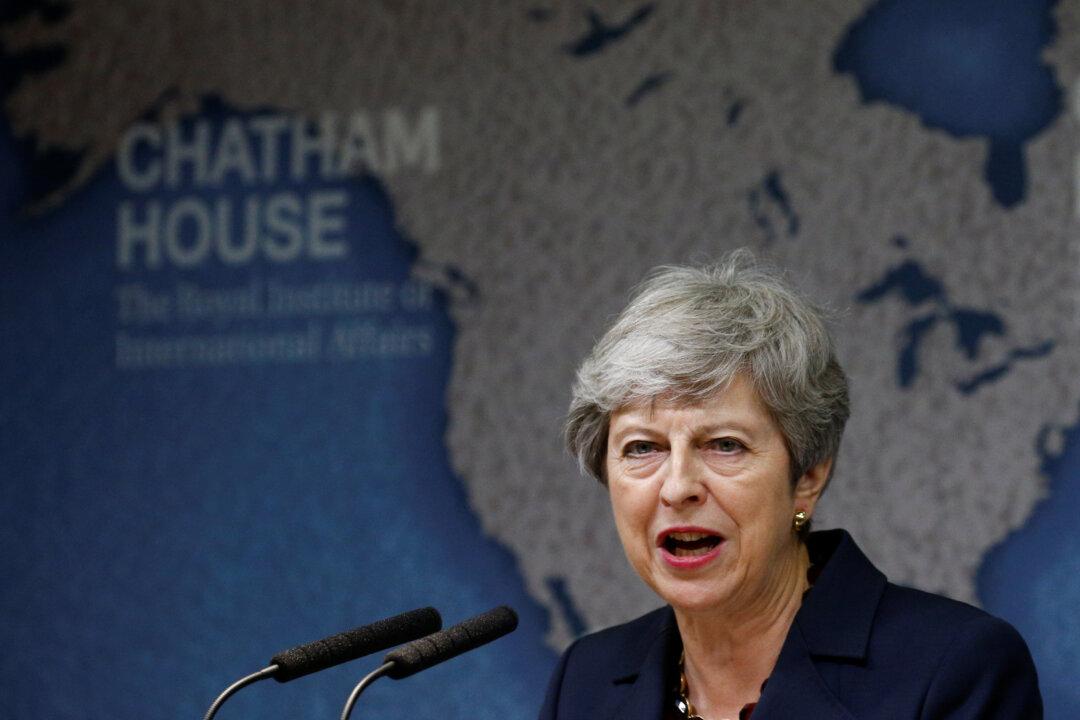Theresa May, in answer to a question from the audience following her final speech as British prime minister, stressed that the UK is committed to observing the Sino-British Joint Declaration.
The treaty, signed in 1984, governed Hong Kong’s transfer of sovereignty from British to Chinese rule in 1997. Both sides had promised to preserve the city’s autonomy and essential freedoms.





